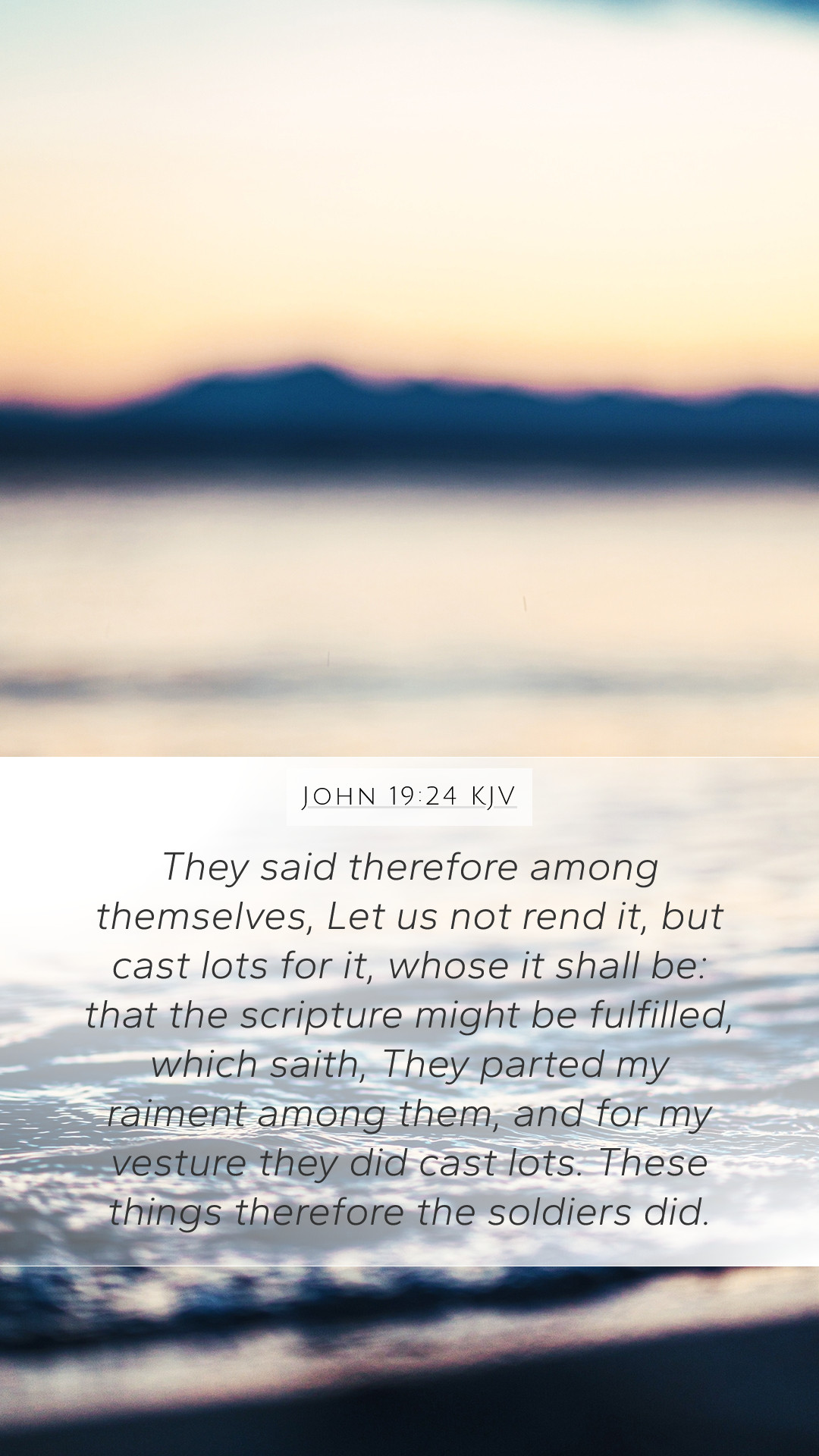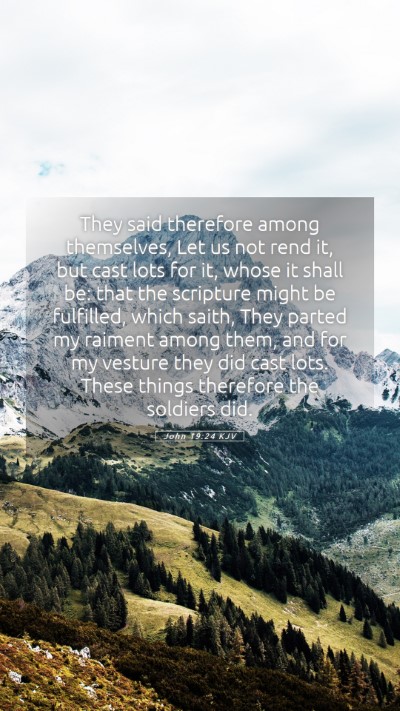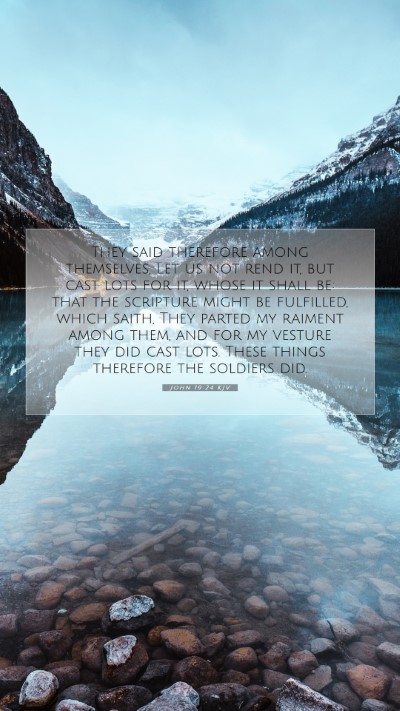Understanding John 19:24
Bible Verse: John 19:24
"They said therefore among themselves, Let us not rend it, but cast lots for it, whose it shall be: that the scripture might be fulfilled, which saith, They parted my raiment among them, and for my vesture they did cast lots. These things therefore the soldiers did."
Overview
John 19:24 presents a poignant moment during the crucifixion of Jesus when Roman soldiers divides His garments. This verse is not just a historical account but also rich with Bible verse meanings and implications about prophecy and fulfillment in the New Testament.
Commentary Insights
This analysis combines the insights of renowned public domain commentators such as Matthew Henry, Albert Barnes, and Adam Clarke to unfold the depth of this scripture.
Matthew Henry's Commentary
Matthew Henry notes that the incident of casting lots for Jesus' clothes illustrates not only the callousness of the soldiers but also the profound fulfillment of prophecy. Henry emphasizes that this act was foretold in the Old Testament, particularly in Psalm 22:18, where it reveals the mockery and cruelty Jesus faced during His crucifixion. This reflects the disregard for Christ at His most vulnerable moment.
Albert Barnes' Commentary
Albert Barnes points out that the fulfillment of prophecy stresses the divine sovereignty and foreknowledge of God. He asserts that the soldiers' actions, seemingly trivial, are part of the larger narrative of redemption and God's plan. This not only exemplifies the disdain the world has for Christ but also serves as a testament to the reliability of Scripture.
Adam Clarke's Commentary
Adam Clarke offers an additional layer by analyzing the cultural context in which this event took place. He discusses the significance of clothing in biblical times and how the act of casting lots for Jesus' garments highlights both the soldiers' indifference and the fulfillment of ancient prophecies. Clarke emphasizes the theological implications, illustrating how even the seemingly mundane actions of Roman soldiers are deeply intertwined with the salvific narrative of Christ.
Significance of the Verse
John 19:24 serves as a crucial point of Bible verse interpretation, showcasing the fulfillment of Old Testament prophecies in the death of Jesus. It reminds readers that every detail in the crucifixion narrative is significant. The casualness with which the soldiers divide His clothing starkly contrasts with the sacredness of the moment, creating a powerful commentary on human nature and the indifference towards divine suffering.
Biblical Exegesis and Application
The verse invites deep Bible study insights into how we perceive the events surrounding Jesus' crucifixion. Here are some important applications:
- Reflection on Prophecy: Believers are encouraged to explore the prophecies in the Old Testament that relate to Christ, deepening their understanding of Scripture.
- Understanding Human Nature: The callousness of the soldiers can serve as a mirror for our own indifference towards suffering and the value of human life.
- Divine Purpose in Suffering: This verse highlights how God works through human actions—even cruel ones—to accomplish His divine plan, offering hope to those who suffer.
Cross References
This verse relates to several important scriptures that enhance its meaning:
- Psalm 22:18: "They part my garments among them, and cast lots upon my vesture."
- Matthew 27:35: "And they crucified him, and parted his garments, casting lots: that it might be fulfilled which was spoken by the prophet..."
- Luke 23:34: "Then said Jesus, Father, forgive them; for they know not what they do. And they parted his raiment, and cast lots."
Conclusion
In conclusion, John 19:24 encapsulates the deep and complex relationship between prophecy, human action, and divine purpose. Through the lenses of Matthew Henry, Albert Barnes, and Adam Clarke, one gains a profound perspective on the significance of this scripture, revealing layers of Bible verse explanations that enrich the reader's faith and understanding. For those engaging in Bible study groups or seeking to deepen their understanding through online Bible study, this verse serves as an essential reference point in exploring the nature of Christ's sacrifice and its implications in our lives.


